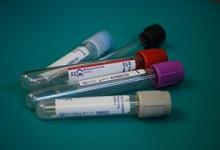Out of Pocket Costs for Biosimilars - No Savings So Far Save

JAMA has published an analysis showing that under Medicare Part D, RA biosimilar infliximab-dyyb was only moderately less expensive (18% less) than the biologic infliximab and, owing to differences in gap discounts, the out of pocket costs for the biosimilar was nearly $1700 more than infliximab in 2017.
Biologic specialty drugs represent approximately 2% of prescriptions but accounted for 38% of US drug spending in 2015 and 70% of drug spending growth between 2010 and 2015. Biosimilars were introduced to yield substantial savings, but the promise of cost savings with the biosimilars has not yet been realized.
Medicare's Part D program consists of a deductible, coverage phase, coverage gap, and catastrophic coverage. When beneficiaries’ total drug costs exceed a set threshold, they enter the coverage gap and cost-sharing increases.
Currently, Medicare beneficiaries receive a 50% manufacturer discount during the gap for biologics, but not for biosimilars. Although the recent Bipartisan Budget Act requires gap discounts for biosimilars starting in 2019, patients’ out-of-pocket costs will continue to depend on whether biosimilars differ from biologics in drug pricing and plan cost-sharing requirements.
Researchers studied the coverage and cost-sharing for the first RA biosimilar "Infectra" (infliximab-dyyb) released in 2016 and compared this to its biologic (infliximab) under a standard 2017 Part D benefit. This includes a $400 deductible, coverage phase (out-of-pocket costs based on calculated national means), coverage gap starting at $3700 in total drug costs, and catastrophic coverage once out-of-pocket costs exceed $4950 (beneficiaries pay 5% for biologics or biosimilars thereafter).
During the gap, beneficiaries pay 40% for biologics (plans pay 10%, manufacturer discounts 50%) and 51% for biosimilars (plans pay 49%).
In the over 2500 plans studied only 10% covered infliximab-dyyb compared with 96% for infliximab (96%).
Eight weeks of Infliximab-dyyb therapy was modestly lower in cost compared to the originator drug ($2185 vs $2667) and the same was true for annual costs ($14 202 vs $17 335).
While coinsurance cost-sharing for infliximab-dyyb were similar to infliximab (26.6% vs 28.4% of drug cost), discounts for the originator resulted in higher annual out-of-pocket costs for the biosimilar ($5118 vs $3432).
New legislatoin in 2019, may alleviate this discrepancy some, the current low level discounts and high price appears to negate or limit the affordability of biosimilar specialty drugs.










If you are a health practitioner, you may Login/Register to comment.
Due to the nature of these comment forums, only health practitioners are allowed to comment at this time.